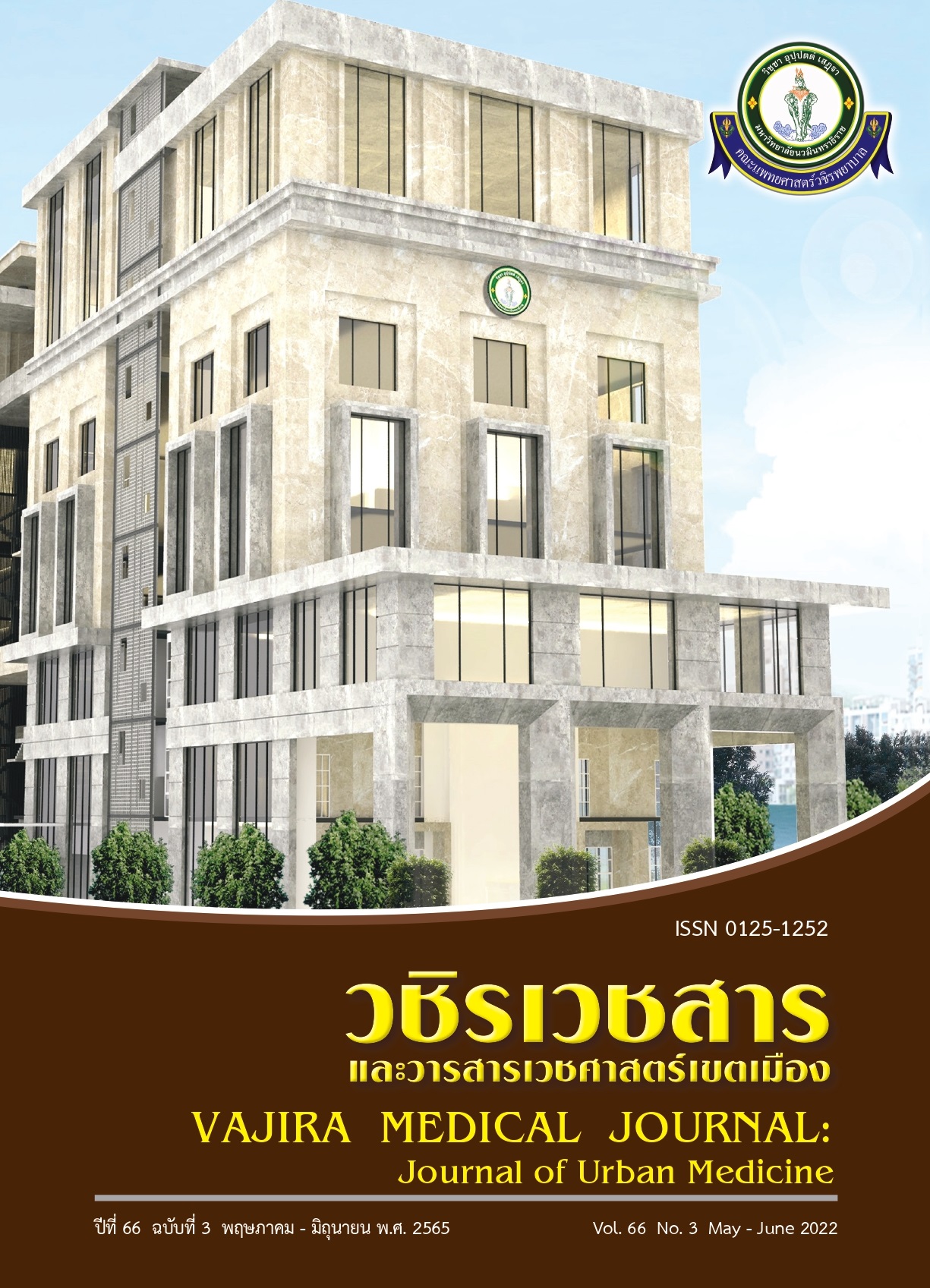Relationship between Online Formative Assessment and Summative Assessment in the Pediatric Module among Fifth-Year Medical Students
Main Article Content
Abstract
Objectives: The present study aimed to explore the relationship between online formative outcomes and summative performance in the pediatric module among fifth-year medical students.
Methods: We retrospectively collected and reviewed the learning data of 84 fifth-year medical students who enrolled in the pediatric module between August 2020 and July 2021.
Results: Students who received individualized feedback had a higher mean summative score than their counterparts (61.17 ± 9.5 vs. 59.24 ± 9.6), and their summative outcome was significantly higher than their formative outcome (61.17% vs. 47.9%). The online formative scores were not correlated with summative scores, but there appeared a strong positive correlation between cumulative grade point average (CGPA) and summative scores (r = 0.685, p-value = 0.001) and a weak negative correlation between pediatric clerkship evaluation and summative scores (r = -0.380, p-value = 0.004). Univariate analysis revealed that lower average cumulative grade point average was significantly associated with an unsatisfactory grade in the pediatric module.
Conclusion: The online formative assessment was not correlated with the summative assessment. Therefore, clinical teachers should consider other factors, especially CGPA to identify students who have a tendency for academic failure.
Downloads
Article Details

This work is licensed under a Creative Commons Attribution-NonCommercial-NoDerivatives 4.0 International License.
References
Bell B, Cowie B. The characteristics of formative assessment in science education. Sci Ed 2001;85:536–53.
Black P, Wiliam D. Developing the theory of formative assessment. Educ Asse Eval Acc 2009;21:5-33.
Bing-You R, Hayes V, Varaklis K, Trowbridge R, Kemp H, McKelvy D. Feedback for Learners in Medical Education: What Is Known? A Scoping Review. Acad Med 2017;92(9):1346-54.
Ellaway R, Masters K. AMEE Guide 32: e-Learning in medical education Part 1: Learning, teaching and assessment. Med Teach 2008;30(5):455-73.
Velan GM, Jones P, McNeil HP, Kumar RK. Integrated online formative assessments in the biomedical sciences for medical students: benefits for learning. BMC Med Educ 2008;8:52. doi: 10.1186/1472-6920-8-52.
Azzi AJ, Ramnanan CJ, Smith J, Dionne E, Jalali A. To quiz or not to quiz: Formative tests help detect students at risk of failing the clinical anatomy course. Anat Sci Educ 2015;8(5):413-20.
Luvira V, Bumrerraj S, Srisaenpang S. Formative Evaluation and Learning Achievement in Epidemiology for Preclinical Medical Students. Indian J Community Med 2018;43(4):298-301.
Mitra NK, Barua A. Effect of online formative assessment on summative performance in integrated musculoskeletal system module. BMC Med Educ 2015;15:29. doi: 10.1186/s12909-015-0318-1.
Nolette S, Nguyen A, Kogan D, Oswald C, Whittaker A, Chakraborty A. Efficacy of formative evaluation using a focus group for a large classroom setting in an accelerated pharmacy program. Curr Pharm Teach Learn 2017;9(4):633-8.
Mandal A, Ghosh A, Sengupta G, Bera T, Das N, Mukherjee S. Factors affecting the performance of undergraduate medical students: a perspective. Indian J Community Med 2012;37(2):126-9.
Al Shawwa L, Abulaban AA, Abulaban AA, Merdad A, Baghlaf S, Algethami A, et al. Factors potentially influencing academic performance among medical students. Adv Med Educ Pract 2015;6:65-75.
Kwankajonwong N, Ongprakobkul C, Qureshi SP, Watanatada P, Thanprasertsuk S, BongsebandhuPhubhakdi S. Attitude, but not self-evaluated knowledge, correlates with academic performance in physiology in Thai medical students. Adv Physiol Educ 2019;43(3):324-31.
Greenburg DL, Durning SJ, Cohen DL, Cruess D, Jackson JL. Identifying medical students likely to exhibit poor professionalism and knowledge during internship. J Gen Intern Med 2007;22(12):1711-7.
McKinstry BH, Cameron HS, Elton RA, Riley SC. Leniency and halo effects in marking undergraduate short research projects. BMC Med Educ 2004;4:28. doi: 10.1186/1472-6920-4-28.


